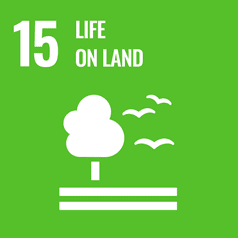Researchers bank on IVF to save koalas
Koalas are one of our most treasured species, but their dwindling numbers has prompted a race against time to protect their precious genetics.

Researchers from the University of Newcastle’s School of Environmental and Life Sciences are working on a long-term solution to secure the future of our national icon.
Postdoctoral researcher Dr Ryan Witt, and colleagues are proposing to freeze koala sperm and then apply assisted reproductive technologies – like human IVF – to inject much-needed genetic diversity and boost dwindling koala populations.
Genetic issues in koalas caused by inbreeding can lead to reproductive dysfunction and infertility, compromising survival rates, disease resistance and koalas’ ability to adapt to changing environmental conditions. Developing a biobank of live koala genetics to impregnate female koalas in breed-for-release programs could give koalas a much better chance of survival.
More research and funding is essential to tweak existing assisted reproduction technologies and leverage the tools we already have, before we lose Australia’s wild koalas for good.”
Dr Ryan Witt
Postdoctoral Researcher
School of Environmental and Life Sciences
Doctor of Philosophy, 2018
Bachelor of Environmental Science and Management (Honours), 2014
Bachelor of Environmental Science and Management, 2012
Bachelor of Social Science (Recreation & Tourism), 2008
“Traditional captive breeding programs, like those used in zoos, are expensive and they don’t address many of the issues with koala genetics due to an inability to hold large numbers of animals in captivity,” Dr Witt explains.
“The beauty of applying assisted reproductive technologies to koalas is that many of the foundations have been laid. By using frozen sperm, we could reintroduce genetic variation into wild koala populations that are declining rapidly without having to relocate koalas.”
While koalas will continue to face threats, using IVF technology will lower the cost of breeding programs and free up valuable conservation funding to support other koala conservation efforts such as habitat restoration. The hurdle is trying to freeze koala sperm and make use of it – which is where more research is needed.
An estimated 61,000 koalas were caught in the 2019/2020 Australian bushfires and more than 5,000 died. Unless there is urgent human intervention and more research, studies have predicted that koalas could be extinct in NSW by 2050.
Would you like to find out more about koalas in NSW?
Click here to register for a free community webinar with Dr Ryan Witt on 30 November 2022
If you would like to contribute to extending this research, please visit newcastle.edu.au/koala-research-donation
The University of Newcastle acknowledges the traditional custodians of the lands within our footprint areas: Awabakal, Darkinjung, Biripai, Worimi, Wonnarua, and Eora Nations. We also pay respect to the wisdom of our Elders past and present.

